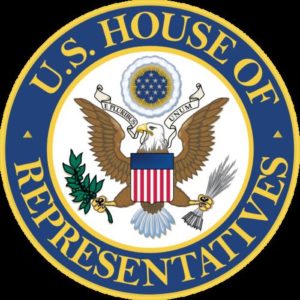By Jim Ellis
 Aug. 14, 2020 — In the past several days, 14 polls in 13 competitive House districts were publicly released, and they all tell a unique story. The synopsis is below (in alphabetical order):
Aug. 14, 2020 — In the past several days, 14 polls in 13 competitive House districts were publicly released, and they all tell a unique story. The synopsis is below (in alphabetical order):
CO-3:
• GQR Research – Mitsch Bush (D) 43%; Boebert (R) 42%
Greenberg Quinlan Rosner Research (Aug. 3-6; 400 likely CO-3 voters) went into the field to test Democratic candidate Diane Mitsch Bush versus Republican Lauren Boebert, who unseated Rep. Scott Tipton (R-Cortez) in the June Republican primary.
The result here is not particularly surprising considering that Boebert was a shocking upset winner in the GOP primary. Mitsch Bush has a huge cash advantage, but Republicans will likely rally around Boebert in a district where President Trump should comfortably win.
IL-13:
• RMG Research – Londrigan (D) 43%; Rep. Davis (R) 41%
After seeing the 2018 election between Rep. Rodney Davis (R-Taylorville) and challenger Betsy Dirksen Londrigan (D) evolve into a 50.3 – 49.6 percent result, the pair returns for Round 2. The RMG poll (July 27-Aug. 7; 400 likely IL-13 voters), though over a very long sampling period, finds what has been clear for some time, that the 2020 edition will yield another tight race.
IN-5:
• WPA Intelligence – Spartz (R) 47%; Hale (D) 40%
The new WPA Intelligence poll (Aug. 4-6; 400 likely IN-5 voters) produces the opposite result of a survey we saw from the GBAO research organization in late June (June 25-28; 500 likely IN-5 voters). The latter study projected Democratic former state representative and ex-lieutenant governor nominee Christina Hale topping Republican state Sen. Victoria Spartz, 51-45 percent.
According to the current WPA data, Sen. Spartz, a Ukrainian immigrant, now holds a 47-40 percent advantage. The latter numbers are more consistent with the district’s voting history. Incumbent Rep. Susan Brooks (R-Carmel) is retiring.

 Dec. 3, 2019 — Now that two states have already completed their congressional candidate filing (Alabama and Arkansas) and five more are scheduled for December including Illinois, which closed yesterday, it is time to begin to ascertain where US House politics might reasonably stand right now.
Dec. 3, 2019 — Now that two states have already completed their congressional candidate filing (Alabama and Arkansas) and five more are scheduled for December including Illinois, which closed yesterday, it is time to begin to ascertain where US House politics might reasonably stand right now. 



